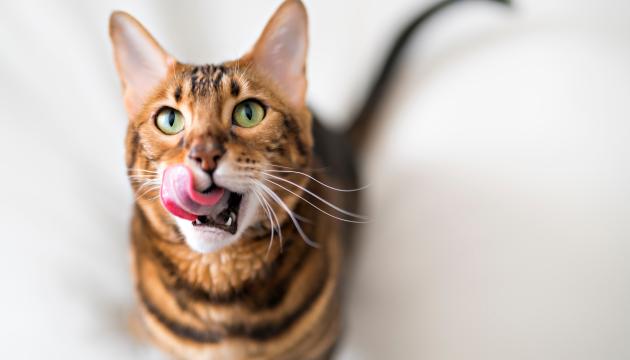

Getting a kitten: What to consider?
Getting a kitten is a big decision, but at best, it can be one of the best decisions you will ever make. Before getting a kitten, remember to familiarise yourself with the kind of pet you are bringing into your home – do you already know what specific needs cats have regarding food or behaviour?
Getting a kitten also requires a financial commitment. Living expenses, veterinary visits, and possible insurance can quickly add up to a significant amount. However, a carefully considered decision to get a kitten can lead to a rewarding life together with your feline companion.
In this article, we will cover:
- What should you consider before getting a kitten?
- Where can you get a kitten from?
- How to settle a kitten into a new environment?
Getting a Kitten or an Adult Cat?
Before getting a cat, it is worth considering whether you are looking for a kitten or if you could offer a home to an adult cat. Kittens require more supervision, training, and possibly playtime, whereas a more mature cat usually knows how to take things a bit more calmly, avoids climbing curtains, and uses the litter box reliably.
Interested in getting an adult cat? Read what to consider beforehand!
Getting a Kitten
Previously, the recommended age for rehoming a kitten was 12 weeks, but current knowledge suggests that a better age is at least 14 weeks. Spending enough time with the mother and siblings is extremely important for a kitten's development.
Moving to a new home too early can cause the cat stress and behavioural issues. For example, a Finnish study found that kittens weaned at 14 weeks were less aggressive compared to those weaned earlier.

It is important to be open with the breeder about your situation to ensure that you and your future cat are a good match. Before getting a kitten, consider the following points:
- How well can I meet the needs of an active cat
- How much time am I willing to spend on grooming the cat's coat?
- How much time will the cat need to spend alone?
- What are the other pets in my home like?
- Are there small children in the family?
If you decide to get a kitten from a breeder, remember to choose a responsible cat breeder. A responsible cat breeder will accustom the kitten to handling, as well as to different situations, sounds, and people. In a kitten's development, there are so-called sensitive periods, during which the foundation is laid for how the cat reacts to environmental stimuli. The sensitive period for socialisation begins when the kitten is about two weeks old. At this time, the kitten learns which species are part of its own group and which are prey or predators. The effort a responsible breeder puts into socialising the kitten is therefore extremely valuable.
In addition, a responsible breeder allows the kitten to taste a variety of different foods, making it easier to keep the kitten's diet as varied as possible in its new home.
PrimaCat Chicken for kittens and nursing cats has a carefully designed nutritional content that helps support your kitten's muscle and bone growth and strengthen kitten’s immunity. Discover more!

Remember to check with the breeder that the kitten has been properly vaccinated and dewormed. Also, ensure you know about any deworming and vaccinations that need to be taken care of after the kitten settles into its new home. Do not forget the cat's identification – microchipping can prove invaluable if the cat manages to run away.
Possible warning signs when getting a kitten include the seller rushing or pressuring you to decide, and if you cannot meet the kitten's mother.
Getting a Kitten from an Animal Protection Society
Animal protection societies may mainly care for adult cats, but kittens looking for homes are also occasionally found. Adopting a cat from an animal shelter or protection society is a good deed, as it eases the burden on animal welfare organisations. At the same time, you can give a good life to a cat that, for one reason or another, has had to change homes or has been left to fend for itself in the wild.
An adult cat may, in some life situations, be a better choice than a kitten that requires a lot of attention.
Things to Do Before the Kitten Arrives
Be sure to acquire the following items in advance for your kitten:
- Food and water bowls
- Dry and wet food
- Litter box for sand or pellets
- Sand or pellets
- Carrier
- Scratching post
- Bed
- Toys.
Cats usually reserve different areas for eating, resting, and toileting. Therefore, it is advisable to place the litter box and the food and water bowls sufficiently far apart.
Before getting a kitten, make your home a safe environment for the little one. It is recommended to:
- Remove plants that are poisonous to cats from the kitten's reach.
- Glaze or net the balcony with a sufficiently strong and dense netting.
- Prevent the kitten's access to rubbish bins.
- Store toxic chemicals, such as detergents, out of the kitten's reach.
The Kitten's First Days in the New Home
A significant change occurs in the life of a small kitten when it arrives in its new home. It is important to let the kitten explore its new environment at its own pace.
You can show the kitten where its bed, litter box, and water and food bowls are located, but otherwise, keep the amount of stimuli and activities to a minimum. For example, guests who are understandably eager to meet the new kitten should visit later. Usually, changes to the kitten's diet are also best left for a later time.
Do you know what kind of food a kitten needs? Read our tips!

It is recommended that you set aside time for your kitten during the first few days – you are the kitten's support and security in the new environment. Do not be alarmed if the kitten occasionally cries without a clear reason. The kitten may miss its familiar environment, mother, and siblings, which is completely normal.
Settling in varies from one kitten to another. A general estimate is a couple of weeks. A settled-in kitten has a good appetite, and spontaneous play sessions are a part of daily life.
Sleeping Place
A kitten can sleep up to 20 hours a day. It is important to provide a safe, quiet, and soft sleeping place for your kitten. Do not be surprised if the kitten climbs into bed next to you – your body warmth and calm breathing may feel very inviting.
Litter Box
Cats are naturally clean animals and often learn to use the litter box from their mother. If your kitten is not yet house-trained when it arrives, you can teach it to use the litter box by placing it there whenever it seems to need to go. The kitten may, for example, scratch the floor.
An effective routine can also be to place the kitten in the litter box early in the morning, late at night, and after meals. Stroke and praise the kitten when it has used the litter box.
By carefully considering and preparing for getting a kitten, you set the foundation for a happy and fulfilling life together. Remember, patience and understanding during the initial settling-in period will help your new feline friend feel secure and loved in their new home.
Make your cat’s litter routine easier with PrimaCat's 100% natural, excellently clumping cat litters, suitable for all silky paws. Explore our products!




